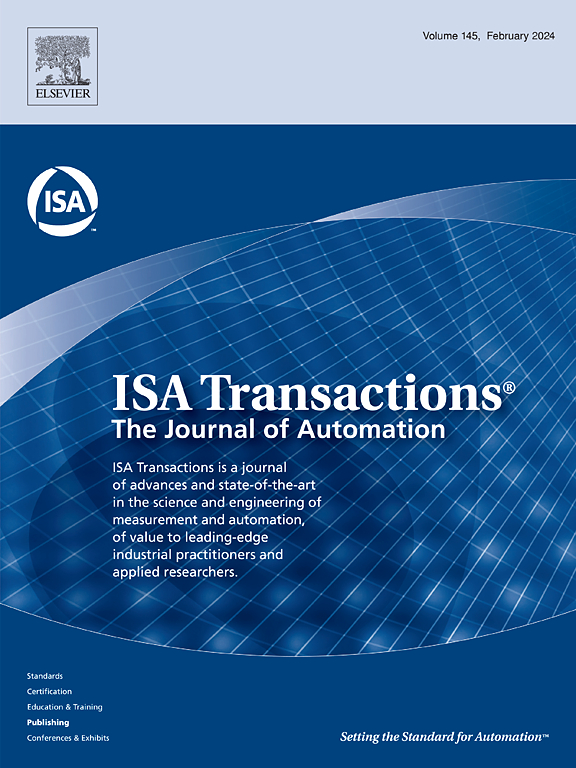未知电力系统的T-S模糊ADP自触发负荷频率控制。
IF 6.3
2区 计算机科学
Q1 AUTOMATION & CONTROL SYSTEMS
引用次数: 0
摘要
可再生能源生产的随机性和电力负荷需求的波动是互联电力系统频率振荡的主要原因。由于整个电网的同步要求,负载频率控制(LFC)已成为维持电力系统稳定和安全的主要挑战。本文提出了一种基于自触发控制的自适应动态规划(ADP)框架与模糊逻辑系统(FLSs)相结合的多区域电力系统LFC新方法。首先,基于多智能体系统(MAS)模型开发了H∞分布式控制器,以减轻参数不确定性和负载扰动的影响。此外,随着相位测量单元和智能电表部署的增加,实时系统测量预计将大幅增加。这一趋势强调了事件触发控制(ETC)在优化通信资源使用方面的重要性。然而,通用设备通常缺乏验证触发规则所需的专用硬件。为了解决这一限制,我们提出了一种新的自触发控制(STC)机制。该STC根据当前状态计算控制律,以确定下一个状态测量,从而消除了对工厂进行连续监控的需要。在一个多区域系统上的仿真结果表明,该方法在负载扰动和参数不确定的情况下能够有效地进行频率调节。本文章由计算机程序翻译,如有差异,请以英文原文为准。
Self-triggered load frequency control using T-S fuzzy ADP method for unknown power systems
Frequency oscillations in interconnected power systems result from the inherent randomness of renewable energy production and fluctuating power load demands. Load frequency control (LFC) has thus emerged as a primary challenge for maintaining power system stability and security due to the synchronization requirements of the entire power grid. This paper proposes a novel approach for LFC in multi-area power systems using a self-triggered control-based adaptive dynamic programming (ADP) framework integrated with fuzzy logic systems (FLSs). First, an distributed controller is developed based on the multi-agent system (MAS) model to mitigate the effects of parameter uncertainties and load disturbances. Additionally, with the increased deployment of phase measurement units and smart meters, real-time system measurements are expected to rise significantly. This trend underscores the importance of event-triggered control (ETC) in optimizing the use of communication resources. However, general-purpose devices often lack the dedicated hardware necessary to verify triggering rules. To address this limitation, we propose a novel self-triggered control (STC) mechanism. This STC calculates the control law based on the current state to determine the next state measurement, thereby eliminating the need for continuous plant monitoring. Simulation results on a multi-area system demonstrate that the proposed adaptive approach performs effectively in frequency regulation under conditions of load disturbance and parameter uncertainty.
求助全文
通过发布文献求助,成功后即可免费获取论文全文。
去求助
来源期刊

ISA transactions
工程技术-工程:综合
CiteScore
11.70
自引率
12.30%
发文量
824
审稿时长
4.4 months
期刊介绍:
ISA Transactions serves as a platform for showcasing advancements in measurement and automation, catering to both industrial practitioners and applied researchers. It covers a wide array of topics within measurement, including sensors, signal processing, data analysis, and fault detection, supported by techniques such as artificial intelligence and communication systems. Automation topics encompass control strategies, modelling, system reliability, and maintenance, alongside optimization and human-machine interaction. The journal targets research and development professionals in control systems, process instrumentation, and automation from academia and industry.
 求助内容:
求助内容: 应助结果提醒方式:
应助结果提醒方式:


